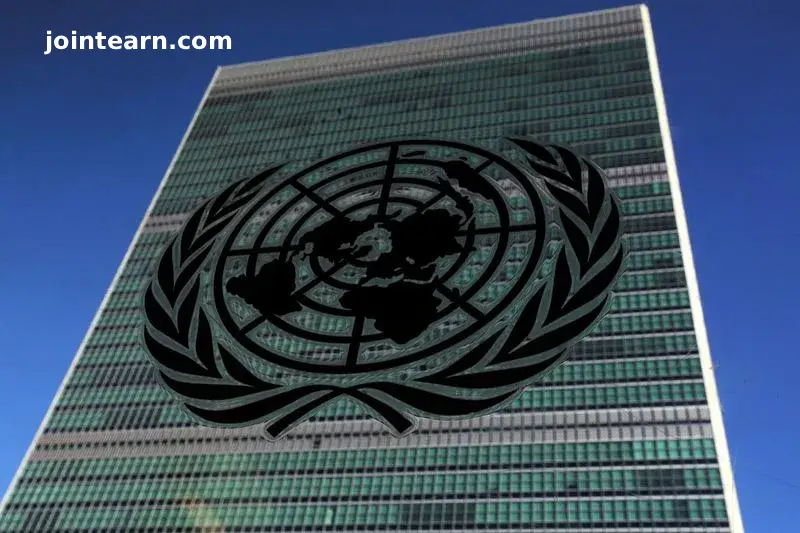
HANOI, October 25, 2025 — In a historic step toward global digital security, more than 60 countries gathered in Vietnam’s capital, Hanoi, to sign the first United Nations Cybercrime Convention, a legally binding treaty designed to curb online criminal activities that cost the global economy trillions of dollars every year.
The agreement, developed under the UN Office on Drugs and Crime (UNODC), represents the most ambitious international effort yet to coordinate global action against cyber threats, including phishing, ransomware, online financial scams, and digital hate speech.
A Global Effort to Tackle Cybercrime
According to UN Secretary-General António Guterres, the treaty marks a major milestone in the fight against cybercrime, which he said “destroys families, steals livelihoods, and drains billions of dollars from the world’s economies every day.”
Speaking at the opening ceremony, Guterres called the UN Cybercrime Convention “a powerful, legally binding instrument to strengthen our collective defences against cybercrime,” adding that digital crimes have become a borderless threat requiring unified international action.
The treaty will formally come into force once it is ratified by at least 40 nations, a process expected to unfold over the coming months.
Key Objectives of the UN Cybercrime Convention
The new treaty provides a legal framework for international cooperation, extradition, and data sharing among signatory countries. It targets a broad spectrum of cybercrimes, including:
- Phishing and online fraud
- Ransomware and malware attacks
- Identity theft and data breaches
- Online trafficking and digital hate speech
Experts estimate that cybercrime costs the global economy more than $8 trillion annually, and could reach $10.5 trillion by 2027 if left unchecked.
Mixed Reactions from Rights Groups and Tech Companies
While governments have largely welcomed the agreement, the treaty has faced criticism from human rights organizations and major technology companies.
The Cybersecurity Tech Accord, a coalition that includes Meta, Microsoft, Dell, and Infosys, warned that the pact could be misused as a “global surveillance treaty”. The group expressed concerns that vague definitions of cybercrime might enable state overreach, criminalize ethical hackers, or pressure private companies to share user data with governments.
Civil society organizations echoed these worries, pointing out that broad state powers without sufficient safeguards could lead to abuses — particularly in countries with limited transparency or weak judicial oversight.
However, the UNODC emphasized that the treaty includes explicit human rights protections, ensuring that cooperation on criminal cases must comply with international law and privacy standards.
Vietnam’s Hosting Role Under Scrutiny
The choice of Vietnam as host has drawn mixed reactions. The Southeast Asian nation has faced international criticism over restrictions on digital freedom and online speech.
The U.S. State Department recently noted “significant human rights issues” in Vietnam, including censorship and arrests for online dissent. Human Rights Watch reported that at least 40 people have been detained in 2025 for expressing political opinions on social media.
Nonetheless, Vietnam’s President Luong Cuong described the treaty signing as “a symbol of the enduring vitality of multilateralism,” saying the pact demonstrates that countries can overcome political differences to ensure global peace, stability, and security.
For Vietnam, hosting the event also signals its ambition to strengthen national cyber defences amid a surge in digital attacks targeting government networks and financial institutions.
Global Powers Align on Cybersecurity
Among the major powers present in Hanoi were the United States, the European Union, and Canada, each represented by senior diplomats and cybersecurity officials. Their participation underlined the growing recognition that cyber threats require cross-border collaboration.
Analysts say the treaty’s success will depend on whether countries can balance national sovereignty with global cooperation, and whether mechanisms for data sharing and digital forensics are implemented fairly and transparently.
“The signing of this convention is not just about combating hackers — it’s about defining the rules of engagement in cyberspace,” said a cybersecurity researcher at the University of Oxford. “The real challenge will be in enforcement and oversight.”
Looking Ahead: Ratification and Implementation
As the treaty moves toward ratification, policymakers will need to address several key issues:
- Safeguarding data privacy and free expression while combating cyber threats
- Defining cybercrime consistently across jurisdictions
- Ensuring fair international cooperation without political misuse
Despite the challenges, experts agree the UN Cybercrime Treaty is a long-overdue step toward a safer, more accountable digital ecosystem.
With billions of people relying on digital technology for communication, banking, and commerce, global leaders hope the treaty will mark a turning point in protecting citizens and businesses from the world’s fastest-growing category of crime.


Leave a Reply